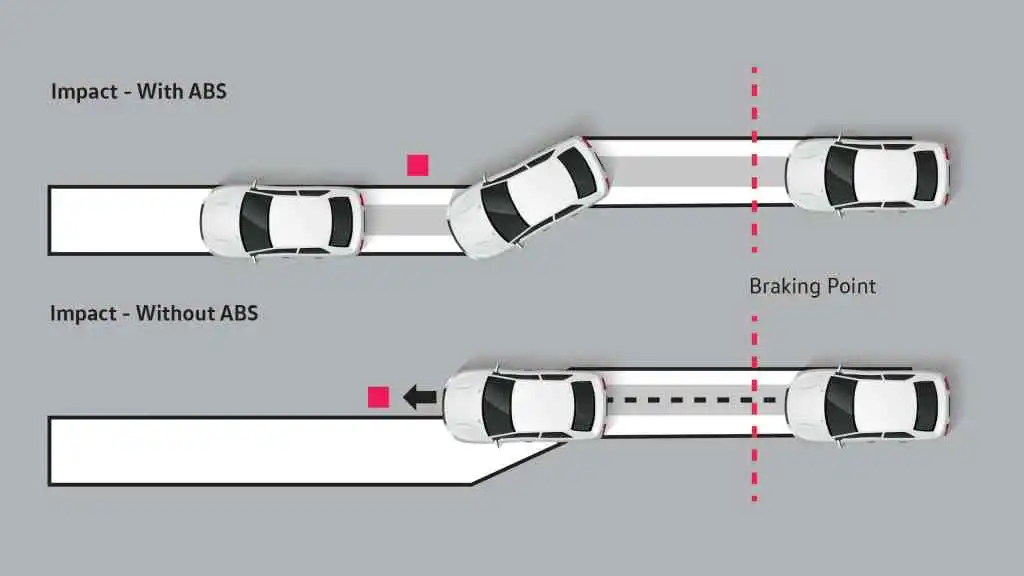- Home
- Volkswagen Cars
- Importance of repairin...
Are your ready for the winter?
Packed those warm clothes, planned a vacation and got your car serviced at your nearest Volkswagen service center in Hyderabad?
Are you sure you aren’t missing out on something?
No, we aren’t giving you a service checklist, but are just discussing the most important part of your service schedule at an authorized Volkswagen service center, especially this winter, if you are planning a long drive.
While the engine, tires, battery, fluids and air filters are always taken care of, the lesser focussed but a very important function of safely driving your Volkswagen, is the Anti Braking System or ABS.
Antilock Braking System (ABS), also known as anti-skid braking system is an active safety system used on all automobiles, to keep the wheels of the vehicles from locking up. This not only helps the drivers to maintain steering control, but also helps them to avoid uncontrolled skidding of the vehicle, decreasing the distance travelled after braking, without slipping.
To check the working, maintain or replace the ABS system on your Volkswagen, visit your nearest PPS Volkswagen service center in Hyderabad where the service consultants are trained to protect your car through customized service adhering to the Volkswagen India standards.
The theory behind the anti-lock braking system is quite simple, every ABS consist of the following components: –
- WHEEL SPEED SENSOR-
The anti-lock braking system needs some way of knowing when a wheel is about to lock up. The speed sensors, which are located at each wheel, or in some cases in the differential, continuously monitors the speed of each wheel provide this information.
They don’t interfere with the operation of the wheel as long as all the wheels have comparable speed. If it finds any mishap with the speed of wheel, then ABS module unit comes into action.
- BRAKE CONTROL UNIT, VALVES, AND PUMP-
There is a valve in the brake line of each brake controlled by the ABS with three positions:
In position one, the valve is open; pressure from the master cylinder is passed right through to the brake.
In position two, the valve blocks the line, isolating that brake from the master cylinder. This prevents the pressure from rising further should the driver push the brake pedal harder.
In position three, the valve releases some of the pressure from the brake.
Since the valve is able to release pressure from the brakes, there has to be some way to put that pressure back. That is what the pump does; when a valve reduces the pressure in a line, the pump is there to get the pressure back up.
The controller is a computer in the car. It watches the speed sensors and controls the valves.
The brake control unit reduces the line pressure with the help of valves in the system. When the braking force decreases, the wheel starts rotating at a higher speed, thus avoiding the lock of wheels. Thus, the vehicle moves according to the driver’s input without skidding as the stability of the vehicle remains intact.
- ABS CONTROL MODULE-
On receiving a low-speed signal from the wheel speed sensor, ABS control module orders the brake control unit to reduce the braking force of that wheel.
All of which work together to keep the traction in tires and help you have a safe journey.
Antilock Braking System is necessary to reduce the risks of accidents on so many fatal conditions on road.

So, ensure that your ABS is always maintained prim and proper and contact an authorized Volkswagen service center in Hyderabad, like the PPS Motors, Hyderabad to help you have safe journeys.
Categories
Archives List
-
March 2019(24)
-
April 2019(1)
-
May 2019(5)
-
June 2019(5)
-
July 2019(11)
-
August 2019(6)
-
September 2019(2)
-
October 2019(2)
-
November 2019(7)
-
December 2019(17)
-
January 2020(2)
-
February 2020(2)
-
March 2020(2)
-
July 2020(5)
-
January 2021(1)
-
February 2021(15)
-
January 2023(1)
-
March 2023(1)
-
April 2023(1)
-
May 2023(2)
-
July 2023(4)
-
August 2023(1)
-
November 2023(1)
-
December 2023(1)
-
August 2024(1)
-
January 2025(1)
-
February 2025(1)
-
May 2025(2)








.jpeg)

 Back
Back